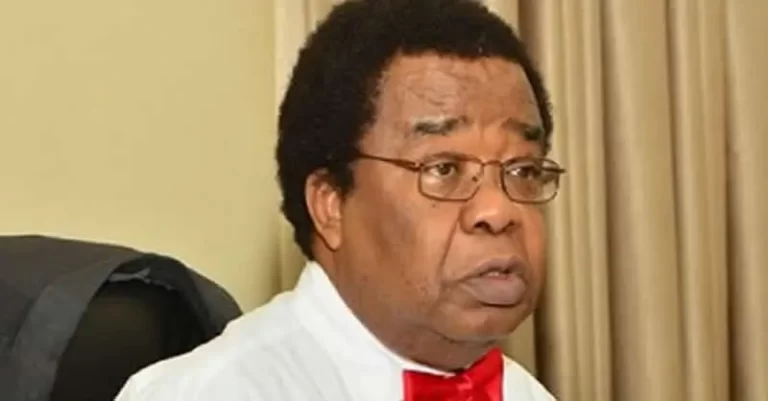Nigeria and other African countries have been advised to be mindful of strategic national interest and take a more strategic approach to Foreign Direct Investment, FDI, from China and other global investors.
This is even as the President Bola Tinubu’s administration has been cautioned to be careful with Chinese deals.
The call was separately made by former Deputy Governor of the Central Bank of Nigeria, CBN, Kingsley Moghalu, and foremost Professor of Political Science, Bolaji Akinyemi.
The statements come on the heels of the 2024 Summit of the Forum on China-Africa Cooperation (FOCAC) held in Beijing from Wednesday, September 4 to Friday, September 6.
The 9th Forum on China-Africa Cooperation Summit themed “Joining Hands to Advance Modernisation and Build High-Level China-Africa Community with Shared Future,” had Nigeria’s President Bola Tinubu in attendance.
According to the Nigerian government, Tinubu’s high-profile visit to China was aimed at fostering economic ties and securing investments for Nigeria.
Arogidigba Global Journal reports that China is Nigeria’s largest creditor, according to the Debt Management Office (DMO) among the five global powers, including France, Japan, India, and Germany.
Nigeria’s debt to China is primarily for infrastructure projects such as railways, highways, and power plants, with analysts fearing the debt burden poses challenges.
Speaking via a post on his X handle over the weekend, Moghalu stressed that the guiding hand of the state remains imperative even in the most capitalist economies.
The former Deputy Governor explained that foreign investment into African countries should be channeled to focus on electricity provision, education and skill development, amongst others.
He said: “As African heads of state and government meet with Chinese leaders in Beijing and China makes another round of investment and financing promises to African countries, US President @JoeBiden ‘s looming decision to block Japan’s Nippon Steel’s acquisition of U.S. Steel on “national security” grounds reminds us of the role of strategic national interest exceptions in the (overall, welcoming) stance of advanced economies (including China) to foreign direct investment. Note that Japan is an American ally.
“The lesson is that, while market forces have created the most wealth of nations in global history, the guiding hand of the state remains imperative even in the most capitalist economies.
“This, of course, presupposes that the state itself is a competent one in the first place. African countries need to take a more strategic approach to FDI from China and other global investors.
“All too often, and with very few exceptions such as Rwanda, Ethiopia and Tanzania, they trade and negotiate away their long term strategic interest in these transactions which also fail to deliver real development and transformation.
“Foreign investment into African countries should be channeled to focus on (a) electricity provision; (b) education and skill development; (c) single-digit financial credit, and venture capital that boosts wealth creation and jobs at the bottom of the pyramid; (d) agriculture value chains.
“This kind of focus would provide the strategic levers to industrialization and other kinds of infrastructure that can be provided through public-private partnerships, leaving governments to focus on social services such as health, basic education to boost literacy.”
On his part, while speaking on Channels Television’s Sunday Politics programme, Akinyemi warned that Tinubu could not afford to repeat the mistakes of successive administrations in the country.
“Of course, we should be careful but don’t isolate the debt to China. There are also debts we owe the United States, there are also debts we owe even some of the medium-power countries.
“What we need to do is to be careful about two things: one, we shouldn’t default on that debt. A month before this African-Chinese Summit, Nigerian Sovereign Goods were being impounded all around the world at the instigation of a Chinese company.
“So, China is not going to serve us anything on global butter; we have to be careful that we fulfill our part of the bargain, not only to China but with all the other countries that we may be doing deals, it will impede on our status, our pride, our sovereign goods to be seized because we are defaulting from fulfilling our part of the agreements.”
Arogidigba Global Journal recalls that a French court recently ruled in favour of a Chinese company, Zhongshan Fucheng, to seize three presidential jets belonging to the Nigerian government.
The development followed a dispute between Zhongshan and the Ogun State government.
